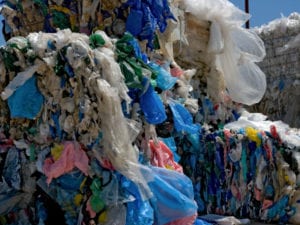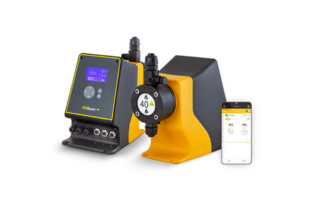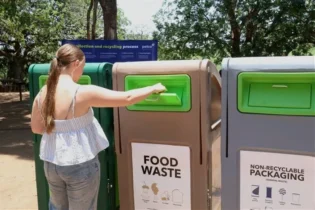South Africans breathed a collective sigh of relief last week when Finance Minister Tito Mboweni announced that the tax threshold of income earners has been lowered and when nothing came of the dreaded VAT increase during the 2020 Budget Speech.
Whilst it was good news for consumers, the Minister made it clear that certain other taxes and levies would need to be raised in order to bolster the State’s coffers. He announced an increase in the plastic bag levy from 12c to 25c at the beginning of April 2020. Moreover, the Budget Review revealed that National Treasury will also be consulting on extending the current levy on plastic bags to all single-use plastics used for retail consumption, including plastic straws, utensils and packaging in 2021. An assessment of the current levy, including a clarification of the tax treatment of compostable bags, will be undertaken. According to Plastics SA Executive Director Anton Hanekom, Minister Mboweni’s announcement of the increased plastic bag levy was clearly framed within the context of the green economy and conveyed the impression that the funds raised will be used to mitigate climate change. “If the expected R250 million generated from raised levies is used to boost recycling and grow a circular economy, we would welcome and support the Minister’s announcement. However, past experiences (such as the failed Buyisa e-Bag initiative) have shown that Government views the plastic bag levy as an easy way to raise funds to pay for other projects that have nothing to do with the environment,” Hanekom says.Plastics|SA calculates that almost R2 billion was raised through the levy on plastic carrier bags since it was first introduced in 2004.
“A section 21 company, Buyisa-e-Bag, was established to administer the funds by promoting waste minimisation and awareness initiatives in the plastics industry, expanding collector networks, creating jobs, as well as kick-starting rural collection by empowering Small Medium and Micro Enterprises (SMMEs) and creating additional capacity in non-governmental organizations (NGOs). However, the project quickly failed and less than half of the money raised went towards recycling projects. The rest was channelled into the National Revenue Fund and allocated to government departments,” Hanekom explains. Despite the lack of government funding, the South African plastics recycling industry continued to record year-on-year growth. In 2018 alone 352 000 tons of plastics were recycled into raw material, achieving an impressive input recycling collection rate of 46.3 % for all plastics. It created permanent employment for 7 800 people and a further 58 500 income-generating jobs during this year. “In recent years the plastics industry has made important strides forward aimed at addressing the issue of plastic bags polluting the environment. For example, plastic bag manufacturers agreed to remove fillers in order to produce bags that are fully recyclable. In addition, recycled plastic material is now used to produce most of the carrier bags sold in South Africa today. We have created an end-market for recycled plastic products and dramatically reduced the amount of waste being sent to landfill. By ensuring that the products we create become part of a circular economy, we create a win-win situation for the environment and for the industry,” Hanekom says. “The plastics and packaging industries continue to work in close consultation with the Department of Environment, Forestry and Fisheries (DEFF) and other interest groups around developing an Extended Producer Responsibility scheme. It is our sincere hope that the money raised through the new plastic bag levy will be ring-fenced for the recycling industry and that the entire process will be managed with transparency, accountability and clear communication to all the parties concerned,” Hanekom concluded.






